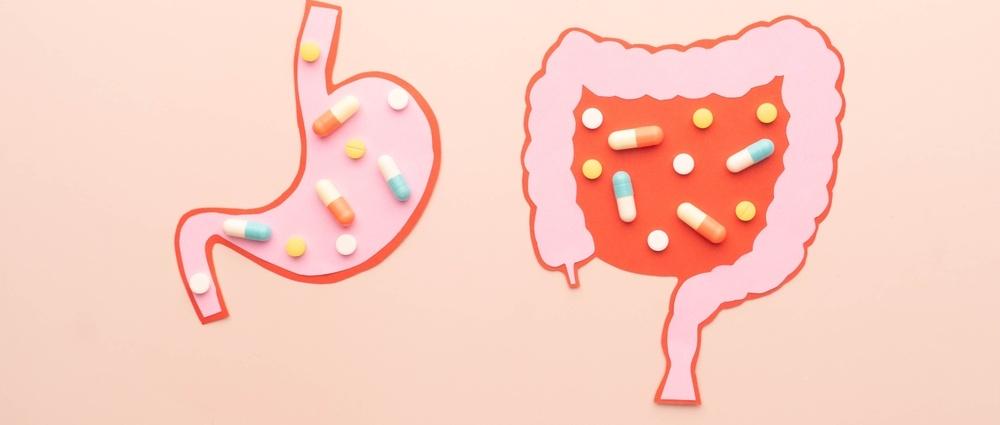
Is it indigestion or something more serious?
Peer reviewed by Dr Sarah Jarvis MBE, FRCGPAuthored by Sally TurnerOriginally published 16 Nov 2021
Meets Patient’s editorial guidelines
- DownloadDownload
- Share
- Language
- Discussion
Many people experience indigestion from time to time, but what are the warning signs that it may be something more serious? We talk to the experts about the symptoms you shouldn't ignore which can be indicators of more serious health conditions.
In this article:
Indigestion - also known as dyspepsia - is usually defined as discomfort in the upper abdomen. It can manifest as belching, trapped wind, heartburn, acid reflux, or a burning sensation in the throat or lower oesophagus.
A common cause of indigestion is over-eating - particularly of foods that are spicy or fatty - and not chewing food sufficiently. Carbonated drinks, caffeine, alcohol and smoking can also be culprits, along with some medications (antibiotics and painkillers) and vitamin supplements (iron and vitamin B complex). Stress and anxiety, pregnancy, constipation and obesity can also be triggers.
"The common causes of indigestion are related to the nature and amount of food that we eat," confirms Dr Anjan Dhar, a professor of medicine and consultant gastroenterologist at County Durham and Darlington NHS Foundation Trust. "And that is also linked to the amount of acid that the stomach produces for digesting our food. There is no definitive number of times we should chew our food before swallowing, but food must be chewed well enough to be of a consistency that allows it to be swallowed easily."
Prolonged chewing makes food easier to digest and enables more nutrients to be absorbed by the gut. A study by the University of Birmingham showed that chewing food for longer also decreased the amount of food consumed and reduced snacking two hours later. Other studies have demonstrated that obese people chew food for shorter periods than those of optimum weight.
"Acid reflux occurs when the lower oesophageal sphincter (the ring of muscle at the bottom of the gullet, where it connects to the top of the stomach) gets weaker," adds Dr James East, a consultant gastroenterologist and endoscopist at Mayo Clinic Healthcare London. "This then allows acid from the stomach (which is acid resistant) into the oesophagus, which is easily damaged by acid.
"Alcohol and coffee reduce lower oesophageal sphincter pressure, and fatty meals, especially if taken later in the day, can also increase the risk of reflux symptoms. An increase in weight can make reflux worse - even losing a few kilos can help improve reflux symptoms. Less common causes of reflux include some blood pressure medications - for instance, amlodipine can relax the lower oesophageal sphincter."
Continue reading below
Tips to avoid indigestion
Eat more slowly and spend longer chewing each mouthful so food is easier to digest.
Drink before or after a meal, not during it.
Wait one to two hours after a meal before exertive exercise (though a short, gentle walk after eating can aid digestion).
Don't lie down straight after eating, and wait two to three hours after your last meal before going to bed.
Indigestion generally responds well to over-the-counter antacid medications and a study has demonstrated that chewing sugar-free gum for half an hour after a meal reduces symptoms of acid reflux, though the findings are not universally accepted.
"It's worth mentioning that some self-help tips for indigestion are not as useful as they are made out to be," adds Dhar. "Digestive enzymes, for example, are only effective when prescribed by a doctor for chronic pancreatitis; they can be bought in health stores as a supplement but won't help with indigestion. And peppermint tea, which is often assumed to be an aid to digestion, can sometimes relax the lower oesophageal sphincter - which makes acid reflux worse for some people."
Is it something more serious?
Back to contentsStomach and gut conditions
"The less common causes of indigestion include inflammation of the stomach, known as gastritis," says Dhar. "This can sometimes be caused by a bacterium called Helicobacter pylori. Peptic ulcers, gastro-oesophageal reflux disease (GORD), functional dyspepsia and functional heartburn can also cause chronic indigestion."
East adds that the lower oesophageal sphincter gets weaker with age which can increase symptoms of indigestion.
"It can also be disrupted if the patient develops a hiatus hernia," he explains. "A hiatus hernia occurs when part of the top of the stomach slips up above the diaphragm making the sphincter less effective. Hiatus hernia is common, affecting roughly one third of people aged over 50. Conditions that slow the emptying of the stomach (gastroparesis) can also make reflux worse. Diabetes is the most common cause of gastroparesis."
Other abdominal conditions
Gallstones and inflammation of the pancreas may produce symptoms similar to indigestion. Intestinal blockage, reduced blood flow in the intestine (intestinal ischaemia), oesophageal spasm and oesophagitis can also cause issues.
"Gallstones can mimic indigestion and reflux," says East. "However, the pain is usually in the right upper abdomen rather than behind the breastbone; it lasts for hours and does not respond to antacids. Ultrasound is the most common test to diagnose this and is sometimes complementary to endoscopy to diagnose upper abdominal symptoms."
(Endoscopy, also called gastroscopy, involves looking into the gullet and stomach with a thin flexible telescope that is gently entended down the throat. It is usually carried out under sedation.)
He adds that long-standing reflux can lead to a change in the lining of the oesophagus, triggering a more acid-resistant form - Barrett's oesophagus.
"This condition increases the risk of oesophageal cancer by more than 30 times in the future. So an endoscopy is sometimes required to assess for Barrett's oesophagus, look for inflammation or a hiatus hernia, and to guide future treatment. Obese Caucasian men aged over 50 with long-standing reflux are recommended to have screening endoscopy for Barrett's oesophagus. A family history of oesophageal cancer or Barrett's oesophagus also increases risk."
Diseases
Sometimes thyroid issues, and coeliac and Crohn'sdiseases, can cause symptoms of indigestion, as can cancers of the stomach, oesophagus and pancreas.
A new test using a sponge on a string that is swallowed and withdrawn (Cytosponge) has been developed by a team at the University of Cambridge, and Mayo Clinic researchers have also confirmed its accuracy. It can be carried out in GP surgeries to collect cells from the lining of the gullet and detect those at risk of oesophageal cancer in the future, hopefully avoiding endoscopy for many.
"Burning central chest pain, while typical for reflux, can also be heart-related," adds East. "Severe pain, especially if it extends into the arms or neck, should not be assumed to be reflux and might indicate angina or even a heart attack. Prompt medical attention should be sought to rule out a heart issue."
Continue reading below
When to see a doctor
Back to contentsMild indigestion is usually nothing to worry about, but seek advice from your GP if symptoms persist or become severe as this may be a sign of something more serious.
"Anyone over the age of 45 years who has a new-onset indigestion lasting more than three to four weeks should consult their GP and get checked out at a specialist clinic," advises Dhar. "Especially if associated with significant (>10%) weight loss, vomiting, or difficulty in swallowing food. Other warning signs are unexplained anaemia, particularly iron-deficiency anaemia, vomiting blood or passing black stools (malaena)."
Chest pain on exertion or with stress should always be checked out immediately and likewise shortness of breath, sweating, or chest pain radiating to the jaw, neck or arm, as this could be indicative of angina or heart attack.
GORD Awareness Week runs from Monday 22nd to Sunday 28th November 2021 and provides information and advice about acid reflux. Visit charity GutsUK for useful information on gastrointestinal diseases.
Patient picks for Indigestion and heartburn

Digestive health
When to worry about indigestion
Most of us get indigestion from time to time, but for some it's a regular annoyance. How can you avoid it, and when should you worry about indigestion?
by Lynn Stephen

Digestive health
Heartburn at night: how to improve sleep quality with heartburn
One in 10 of us are affected by heartburn every day1, and it can be particularly bad at night. If heartburn frequently keeps you from getting a good night's sleep, medicines and adjustments to your evening routine may ease your discomfort. If this doesn't fully cure your heartburn at night, your doctor needs to investigate the underlying cause.
by Amberley Davis
Continue reading below
Article history
The information on this page is peer reviewed by qualified clinicians.
16 Nov 2021 | Originally published
Authored by:
Sally TurnerPeer reviewed by
Dr Sarah Jarvis MBE, FRCGP

Ask, share, connect.
Browse discussions, ask questions, and share experiences across hundreds of health topics.

Feeling unwell?
Assess your symptoms online for free
Sign up to the Patient newsletter
Your weekly dose of clear, trustworthy health advice - written to help you feel informed, confident and in control.
By subscribing you accept our Privacy Policy. You can unsubscribe at any time. We never sell your data.